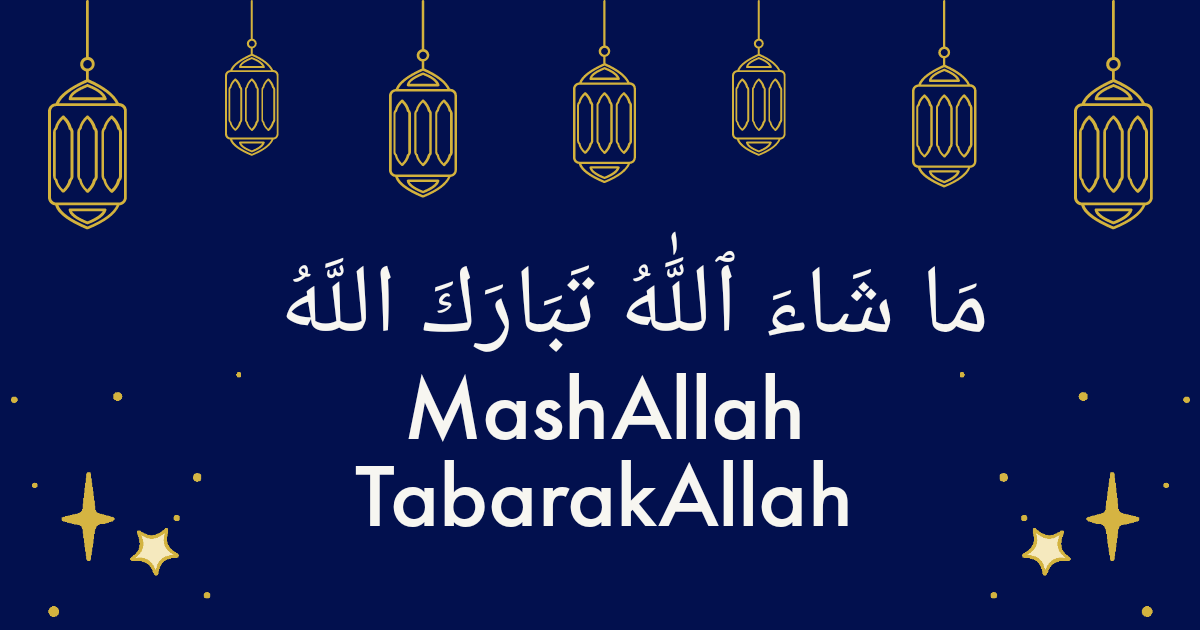Mashallah Tabarakallah Meaning
Table of Contents
ToggleThis article provides an in-depth exploration of the profound meanings and significance behind the Islamic phrases “Mashallah” and “Tabarakallah.” These Islamic expressions are deeply rooted in the Islamic faith and are commonly used by Muslims around the world to express gratitude, appreciation, and reverence for Allah’s blessings.
Key Takeaways
- Mashallah and Tabarakallah are widely used Islamic phrases that hold deep spiritual significance.
- Mashallah conveys a sense of reverence and gratitude for Allah’s blessings.
- Tabarakallah expresses the belief that Allah is truly blessed and worthy of praise.
- Understanding the meanings and usage of these Islamic terms can deepen one’s connection with the Muslim faith.
- These Arabic phrases are integral to religious language and Muslim culture.
Introduction to Islamic Phrases
The Islamic faith is rich in its linguistic and cultural traditions, with a vast array of Islamic expressions and Arabic phrases that hold deep religious language and spiritual significance for Muslim culture. Among these are the commonly used words “Mashallah” and “Tabarakallah,” which convey profound meanings and sentiments within the context of the Islamic faith.
The Significance of Islamic Expressions
These Islamic expressions are not merely words; they are deeply rooted in the religious language and Muslim culture, reflecting the believers’ reverence for Allah and their acknowledgment of His divine attributes. The use of these phrases is woven into the fabric of daily life, serving as a constant reminder of the Islamic terminology and the profound connection between the faithful and their Creator.
Why Learn Mashallah and Tabarakallah?
Gaining an understanding of the meaning and usage of Mashallah and Tabarakallah can provide valuable insights into the Islamic faith and the way Muslim culture perceives and interacts with the world. These Arabic phrases offer a window into the religious language and the deeply held beliefs that shape the lives of millions of Muslims around the globe.

Mashallah: Meaning and Usage
The phrase “Mashallah” is a powerful and widely used expression in the Islamic faith, conveying a deep sense of reverence, appreciation, and gratitude for Allah’s blessings. This Islamic phrase is deeply rooted in the religious language and culture of Muslims worldwide.
Literal Translation of Mashallah
Literally translated from Arabic, “Mashallah” means “what Allah has willed” or “what Allah has decreed.” This phrase acknowledges the divine will and sovereignty of Allah, recognizing that all blessings and good fortune are granted by the Almighty.
Expressing Gratitude and Appreciation
Muslims often use the term “Mashallah” to express their gratitude and appreciation for the gifts and successes that they have been blessed with. It is a way of honoring Allah’s power and acknowledging that all accomplishments ultimately come from the divine plan.
The usage of “Mashallah” extends beyond personal achievements, as it can also be applied to admiring the attributes or accomplishments of others. When used in this context, “Mashallah” conveys a sense of joy, approval, and reverence for the blessings bestowed upon an individual or a situation.
By incorporating the Islamic expression “Mashallah” into their daily lives, Muslims reinforce their faith, cultivate an attitude of gratitude, and maintain a constant awareness of Allah’s presence and power in their lives.
Tabarakallah: Definition and Context
Alongside the phrase “Mashallah,” the expression “Tabarakallah” is another commonly used Islamic expression that holds deep spiritual significance. Translated from Arabic, “Tabarakallah” means “Blessed is Allah” or “May Allah be blessed.”
Meaning of Tabarakallah
The Tabarakallah phrase is a powerful declaration of the religious language and Islamic faith, expressing reverence and gratitude towards the Almighty. By uttering “Tabarakallah,” believers affirm their belief in the absolute sovereignty and divine blessings of Allah, acknowledging His supreme status and worthiness of praise.
Using Tabarakallah in Daily Life
Tabarakallah is commonly used by Muslims in various contexts, such as when witnessing or experiencing Allah’s favor, grace, or provision. It may be said in response to good news, the successful completion of a task, the birth of a child, or any other circumstance that evokes a sense of thankfulness and appreciation for Allah’s wisdom and benevolence.
The regular use of Tabarakallah serves as a constant reminder to believers of their dependence on Allah and the need to acknowledge His sovereignty and blessings in all aspects of their lives. This Islamic expression helps cultivate a mindset of gratitude, humility, and reverence, aligning the individual with the core tenets of the Muslim faith.
Mashallah Tabarakallah meaning
The phrases “Mashallah” and “Tabarakallah” are deeply intertwined within the Islamic faith, often used together to express a profound sense of gratitude, reverence, and acknowledgment of Allah’s blessings and divine attributes. Mashallah, which translates to “what Allah has willed,” is a way for Muslims to recognize and appreciate the wonders and blessings that Allah has bestowed upon them. Tabarakallah, meaning “Blessed is Allah,” further emphasizes the belief that all good things stem from the Almighty and that His power and majesty are to be celebrated.
These Islamic phrases are not merely words, but rather a reflection of the deep-rooted spiritual and cultural beliefs of the Muslim community. When used together, Mashallah and Tabarakallah serve as a powerful expression of one’s faith, conveying a sense of humility, awe, and submission to the will of Allah. They are commonly employed in various aspects of daily life, from celebrating achievements and milestones to acknowledging the beauty and wonder of the world around us.
The interplay of Mashallah and Tabarakallah highlights the central role that language and religious expressions play in shaping the Muslim identity and fostering a shared understanding of the divine within the community. These phrases transcend mere linguistic boundaries, serving as a unifying force that connects Muslims across cultures and generations, reinforcing the core tenets of their faith and the reverence they hold for the Almighty.
| Phrase | Meaning | Usage |
|---|---|---|
| Mashallah | What Allah has willed | Expressing gratitude and appreciation for Allah’s blessings |
| Tabarakallah | Blessed is Allah | Acknowledging the divine power and majesty of Allah |
Conclusion
In the rich tapestry of Islamic culture and faith, the phrases “Mashallah” and “Tabarakallah” hold a profound and enduring significance. These expressions, deeply rooted in the Arabic language and the teachings of the Quran, serve as a testament to the Muslim community’s reverence for the divine and their unwavering appreciation for the blessings bestowed upon them by Allah.
As we have explored, “Mashallah” conveys a profound sense of gratitude and acknowledgment of Allah’s will, while “Tabarakallah” reflects the belief that Allah is truly blessed and worthy of praise. These Islamic expressions go beyond mere words, shaping the way Muslim culture and religious language are woven into the fabric of daily life, guiding believers in their spiritual journey and fostering a deeper connection with the spiritual significance of their faith.
By understanding the Mashallah and Tabarakallah meanings and their profound implications, we gain a deeper appreciation for the richness and complexity of Islamic expressions and the profound impact they have on the Muslim culture and religious language that defines it. As we embrace and honor these hallowed phrases, we not only gain a richer understanding of the Islamic faith but also unlock a pathway to greater spiritual enlightenment and connection with the divine.
FAQ
What is the meaning of “Mashallah”?
“Mashallah” is an Arabic phrase that literally translates to “what Allah has willed” or “what Allah has decreed.” It is a widely used expression in the Islamic faith that conveys a deep sense of reverence, appreciation, and gratitude for Allah’s blessings.
How is “Mashallah” used in daily life?
“Mashallah” is often used by Muslims to express admiration, joy, or thankfulness for a person, event, or achievement. It is a way to acknowledge Allah’s will and recognize His blessings in one’s life.
What is the meaning of “Tabarakallah”?
“Tabarakallah” is an Arabic phrase that translates to “Blessed is Allah” or “May Allah be blessed.” It is another commonly used Islamic expression that conveys a profound sense of reverence and acknowledgment of Allah’s divine attributes and blessings.
How is “Tabarakallah” used in the context of Islamic faith?
Muslims often use “Tabarakallah” to express their belief in Allah’s greatness, to praise His divine attributes, and to recognize the blessings they have received from Him. It is a way to glorify Allah and acknowledge His sovereignty.
What is the connection between “Mashallah” and “Tabarakallah”?
“Mashallah” and “Tabarakallah” are closely related Islamic expressions, often used together to convey a deeper understanding of Allah’s will, blessings, and divine attributes. They represent a profound sense of gratitude, reverence, and acknowledgment of Allah’s sovereignty and the believer’s submissive relationship with the divine.


























